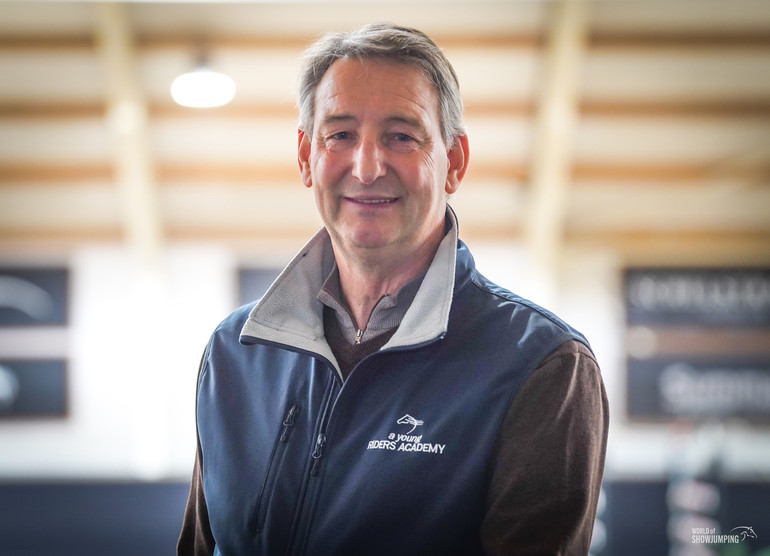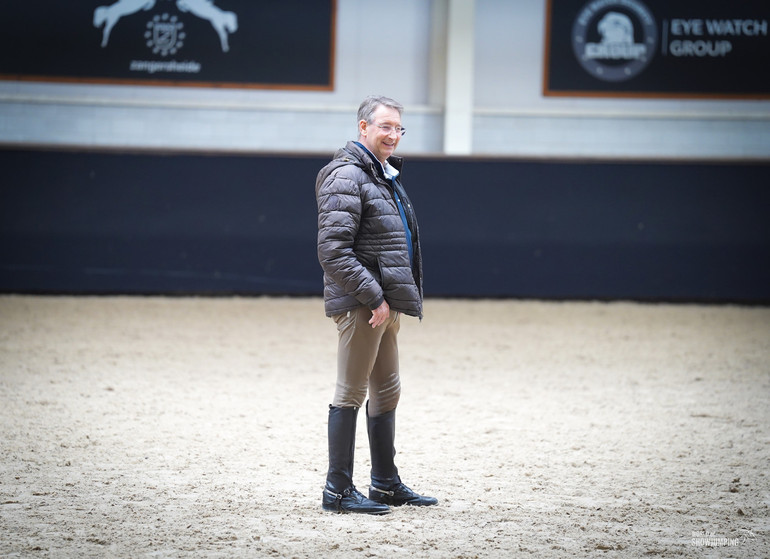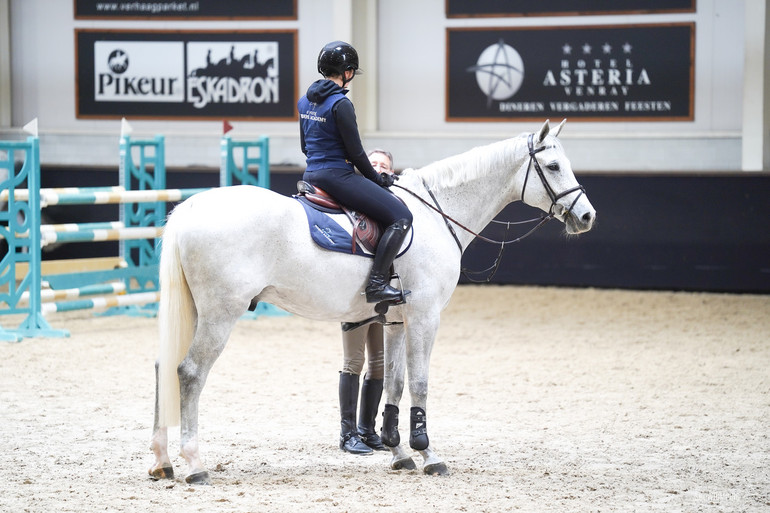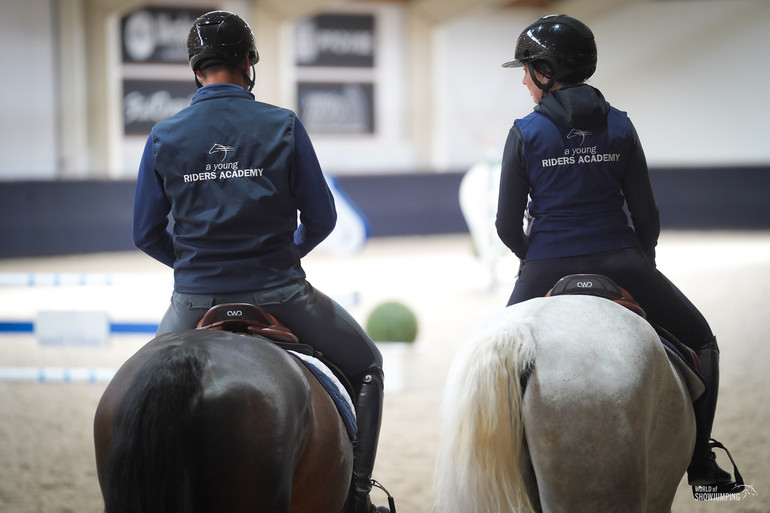Text © World of Showjumping
“When I first started, I had to figure everything out myself,” Franke Sloothaak – 1988 and 1996 Olympic Team Champion – tells World of Showjumping. “Nowadays, with initiatives such as the Young Riders Academy, the next generation can receive support from many different parties.”
WoSJ met up with Sloothaak at Peelbergen Equestrian Center while he was teaching the new group of riders that has been selected for the Young Riders Academy’s 2024-program.
“These days, we also see riders with substantial money in their support system, which allows them more opportunities to compete. None of this existed when I was a young rider. I used to work for someone, get horses to ride and then I had to go to the show and get results. The whole set-up was completely different. However, how riding can be improved is still the most important question that should be asked,” Sloothaak says.
Teaching is a learning experience as well
“I have been training other riders since I was 15,” Sloothaak explains. “Would you expect a 15-year-old to give clinics today? I don’t think so. For me it was a very good experience because you first learn through your own riding and then get a different approach from training others. Watching others ride, seeing their horses and what kind of movements they have is a learning experience as well. When you train others, you see things from another point of view and can then start to think about the easiest way to get to where you want to go.”
How are you supposed to teach others if you don’t know the feeling you are after?
Sloothaak believes that one of the biggest challenges for the future will be a lack of good trainers. “Many claim to be trainers but without having an actual background in riding. Some never had a good horse themselves or never rode a correctly ridden horse. How are you supposed to teach others if you don’t know the feeling you are after? When I'm training, I never wear jeans; I always arrive in riding gear, because I'm there to help, and if necessary, I will get on a horse. In my opinion, you cannot be a trainer if you are not be able to ride a horse for your students. As a trainer, you should be able to show your students what they have to do.”
A horse is the best teacher
“As a trainer, I can teach, but in the end, riders don't learn riding from me, they learn it from their horses,” Sloothaak points out. “Sometimes, if I ride a horse for a student and the student sits on it afterwards, the feeling is different because the horse starts to change in its body and in its mind. It's easier for me to help riders if I can get them to feel; because learning to understand the feeling a horse gives us is the core of riding.”
Learning to understand the feeling a horse gives us is the core of riding
“What is necessary to learn as a rider, is how to get the horse to be with you,” he continues. “The horse has to follow the rider, but that requires trust. Riding is about finding that balance with your horse, a positive aspect of working together. We know ourselves that the better our bodies feel, the more positive our minds are and the job gets easier. That's what I think we have to transmit to the horse. As a rider, you have to make sure that your horse understands exactly what you expect from it. Many people ride but their horses don’t actually understand what their riders want. We cannot make riding complicated; we always have to find a simple way.”
We cannot make riding complicated; we always have to find a simple way
“The rider is there to help the horse, not the other way around. We should try to avoid putting the horse in a situation where it has to help us. Maybe in the beginning, an experienced horse can be a help, but later on, especially when you want to jump the big classes and the biggest courses, then the rider definitely has to be able to help the horse.”
Education instead of regulation
“A huge problem today is that some national federations and even the FEI are not working for our sport but against it,” Sloothaak points out. “In my opinion, the FEI deteriorates more than it creates progress. As an example, if the FEI was for the sport, they never would have changed the Olympic format of having four riders on the team.”
I don’t believe that rules protect the horse; educating people does – and education takes time
“What I see is that the FEI and the national federations have no professional people in charge; they have bureaucratic politicians who have not been in the sport themselves. They have not competed at the Olympics, they have not built up a horse from a youngster to Grand Prix level and they don’t know how much work goes into everything. All they want is to regulate. I am always positive, and I think we should have more freedom and not more regulations.”
“People seem to think that by creating rules you can protect the sport, but I don't think it works like that. I don’t believe that rules protect the horse; educating people does – and education takes time.”
29.5.2024 No reproduction of any of the content in this article will be accepted without a written permission, all rights reserved © World of Showjumping.com. If copyright violations occur, a penalty fee will apply.












